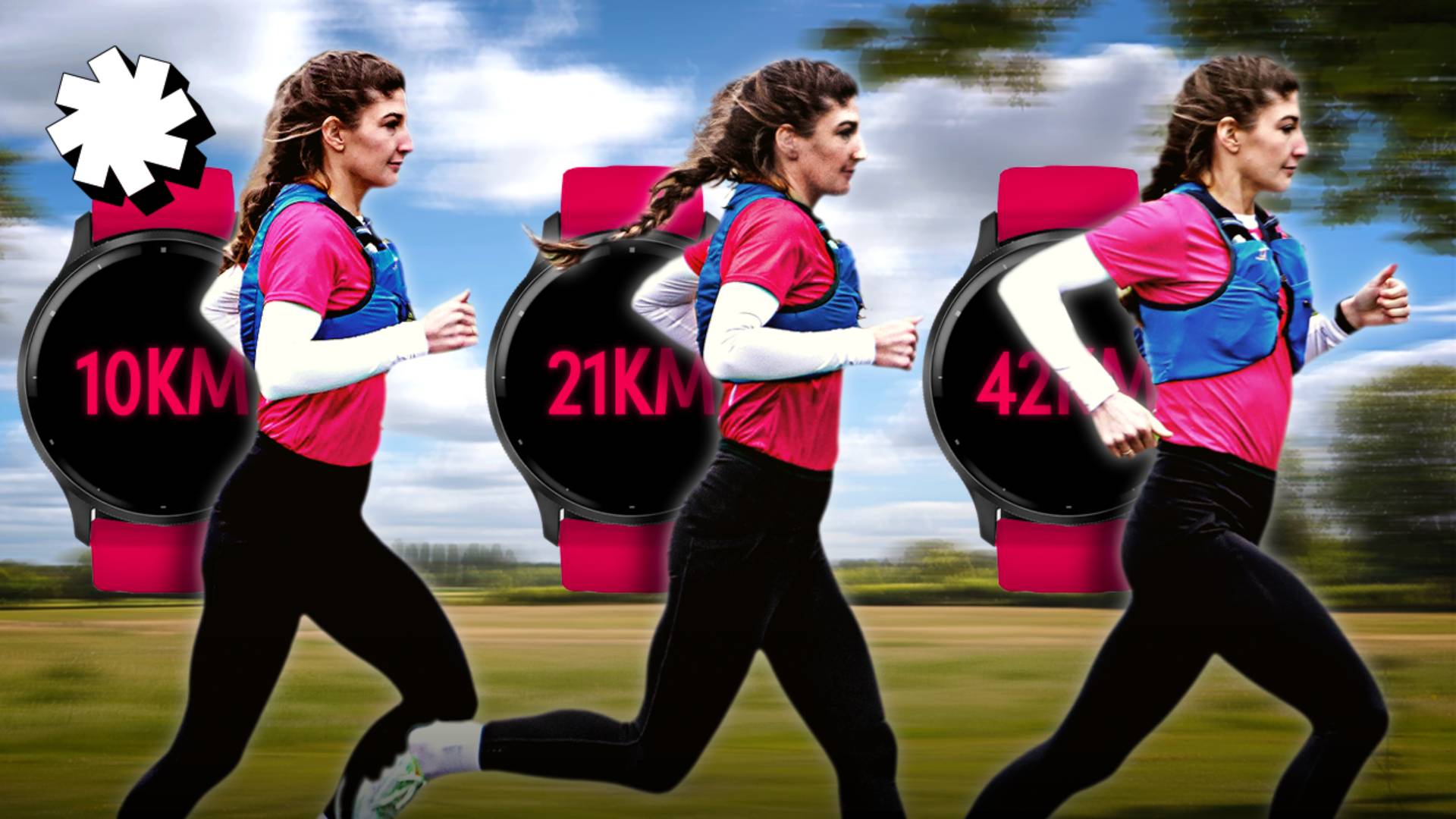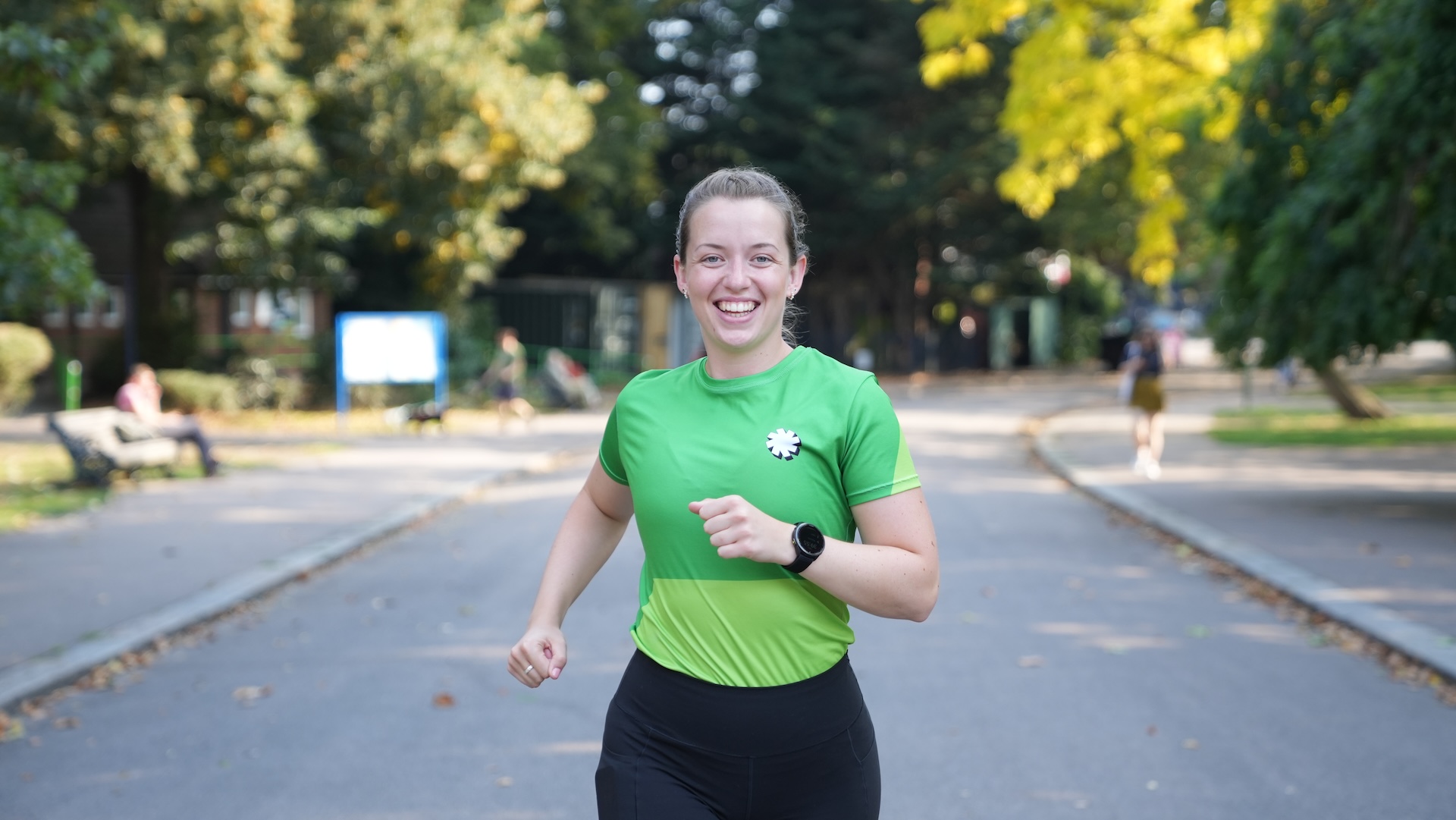Top Tips For Your Marathon Long Run

The most important weekly run in marathon training is the long run. This is the run which gradually builds up each week and will best prepare you for marathon race day.
In this article we’re looking at the importance of a long run to marathon training, why you shouldn’t fear the long run, and how to prepare and fuel a long run.
WHAT IS A MARATHON LONG RUN?
It’s the longest run you do each week in marathon training. Most marathon training plans take around 16 weeks, meaning you’ll have 15 long runs and in the final week will be the longest run of them all: your marathon.
In the first weeks of your training, your long run will be 60-90 minutes (depending on your level of running experience), and it will build to up to 16-22 miles / 25-35km / or up to 4 hours.
HOW LONG IS A MARATHON LONG RUN?
Your long run will increase to 16-22 miles / 25-35km / or up to 4 hours. That’s a broad range but it all depends on your running experience and fitness, and your race goals.
Typically runners aiming for a faster time will focus more on distance, while those who don’t have time-specific goals will focus more on duration. Here is how long a marathon long run may be based on expected finish time. These are distances with duration in brackets.
- Sub 2:30 marathon: 22-25 miles / 35-40km (2:15-2:45)
- Sub 3:00 marathon: 20-24 miles / 32-39km (2:45-3:15)
- Sub 4:00 marathon: 17-20 miles / 26-32km (3:15-3:45)
- Sub 5:00 marathon: 16-19 miles / 26-30km (3:30-4:00)
- Over 5:00 marathon: 15-18 miles / 25-29km (3:30-4:00)
DON’T FEAR THE LONG RUN
Look at your training plan and the longest long runs of your marathon block may seem intimidating, even terrifying (how am I ever going to run 20 miles?!). But don’t worry, and don’t panic about those long runs which are happening many weeks in the future.
The reason we take 16 weeks or more to train for a marathon is so that we can gradually build up those long runs. You’ll go from 60 minutes to 75 minutes to 90 minutes and within two months you’ll be running further than you thought you could, and that’s amazing.
If this is your first marathon, then every long run will likely become your new longest run ever. Embrace that and celebrate it. Each week is a new challenge to succeed at.
The most incredible thing about marathon training is how you feel stronger and fitter every week, and how your body becomes more resilient and more able to take on those distances. Those long runs might feel like big obstacles, but part of the process of becoming a marathon runner is that we achieve each of these runs along the way. We can do hard things, especially if we prepare for them and approach them in the right way.
So as you reach each long run, embrace it and look forward to it. Stay positive about what you are doing, and know that completing each run gets you about 30,000 steps closer to becoming a marathoner.
HOW TO SUCCEED IN EVERY LONG RUN
- Don’t skip a long run (unless you’re ill or injured). If you need to adjust your training during a week then that’s fine, but the long run should be the priority
- Make a plan for each long run. Know where you’ll run and how far that run is. Plan for where you might be able to stop for water (a fountain or a shop), and even where there might be toilets
- Check the weather and wear the appropriate kit. That could be sunglasses and a slather of suntan lotion or might mean a beanie and waterproof jacket. Wearing the wrong kit can be a quick way to make a run much less enjoyable
- Learn how to carry things on a run. A running hydration vest, belt or shorts/tights with pockets can be very helpful to hold water, gels, a phone and anything else you might need
- Have a meal with plenty of easy-to-digest carbs the night before, and have a good pre-run breakfast (common pre-run foods include oatmeal, toast, a bagel or plain rice) at least two hours before you run – this is essential to give you all the energy you need for the run
- Take water and extra energy with you. As your runs get longer you’ll want to start taking gels or other forms of energy like chews, energy bars or energy drink
- Properly rest, hydrate and refuel after a long run. You might burn 2000 calories during a 20 mile run, so make sure you eat well for the rest of the day
- Learn from each long run. If they go well, then what did you do well that you can repeat? If you struggle (and you probably will struggle on some of them) then what could you change next week?
- Start with a positive mindset. Lace up your trainers ready to have a great run and embrace whatever comes. Know that you’ll probably be running further than you’ve ever run before, and that’s amazing
- If you struggle during a run then take some time to walk and work out how you can feel better. Is there something you need like more water or some food? If you’re struggling with the distance then think about your reasons for running in the first place and use that to help motivate you. It might feel hard, but you can definitely do this and finishing the run is so much more rewarding than stopping – you’ll have an incredible sense of achievement when you finish.
THE BENEFITS OF THE MARATHON LONG RUN
- This is the run which best prepares you for running a full marathon distance and by gradually increasing this each week you train your body to have the endurance it needs for race day
- With each long run you realise the incredible things your body is capable of and you should celebrate completing each one
- The long run helps to condition your body to the effort of running for several hours, and helps to build strength to your muscles and connective tissue
- The long run will tell you what weaknesses you have. Do you have lingering aches after the run? Do your shoes or clothing rub in a certain place? Do you struggle with energy? It’s better to find these out weeks before your race so that you can improve them and not face the same issues on race day
- Long runs allow you to practise your race day nutrition and to try out your race kit, so you can test out everything ahead of race day
- Long runs help you psychologically prepare for race day as completing each long run will develop the confidence that you can take on 26.2 miles
Here’s a complete guide to marathon training which covers everything you need to know to get you through 26.2 miles.





























Running News
Ingebrigtsen Stars at World Athletics Indoor Championships 2025 – Plus All The Winners!
Sam Ruthe Is First 15-Year-Old To Run A Four-Minute Mile!
Eliud Kipchoge Will Run The 2025 Sydney Marathon!